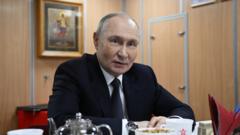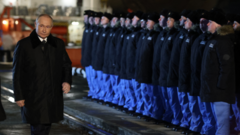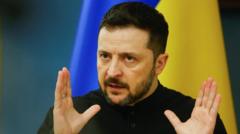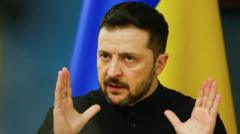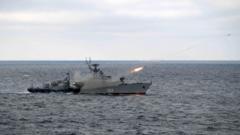A divide is emerging among European nations in their commitment to increase military spending, despite pressures from the U.S. to strengthen defense capabilities. Key players like Italy and Spain express hesitance over significant military funding as various member states grapple with economic challenges and differing priorities.
European Military Unity at Risk Amid Financial Strain

European Military Unity at Risk Amid Financial Strain
Political will and financial resources are waning among European leaders as they seek to bolster military support for Ukraine while ensuring their own defense.
European leaders face an uphill battle as they navigate the complexities of military spending in the wake of rising threats from Russia. While there is clear pressure from Washington for the EU to take a more active role in its defense and to support Ukraine, the resolve appears to weaken under the strain of economic realities—such as sluggish growth and rising national debts.
The sentiment in Europe reflects a wavering commitment to collective defense funding, with nations like the Netherlands resisting proposals for increased shared military debt. As conversations around military contributions unfold, countries including Hungary are becoming harder to maintain in the fold.
Recently, the European Commission unveiled a multibillion-dollar military initiative dubbed “ReArm Europe,” which aimed to bolster defense capabilities. However, backlash from major members like Italy and Spain, who deem the proposal excessively ambitious, has forced the plan’s rebranding to “Readiness 2030.” This shift highlights the concern among some states regarding the pace at which Europe can realistically increase its defense spending.
The situation demonstrates not just internal disagreements, but also a growing awareness that European reliance on U.S. military support may need to be recalibrated. With expectations of shifting political landscapes—such as the anticipated end of the Trump administration—it is clear that Europe’s ambitions of self-sufficiency will necessitate patience, strategic financial allocations, and improved collaborations, both amongst member states and with transatlantic partners.





